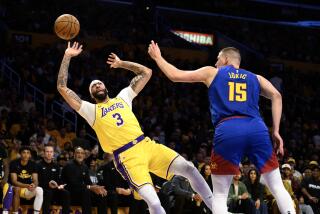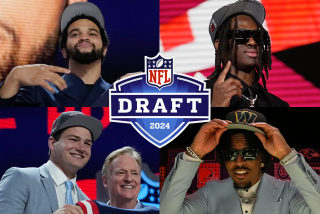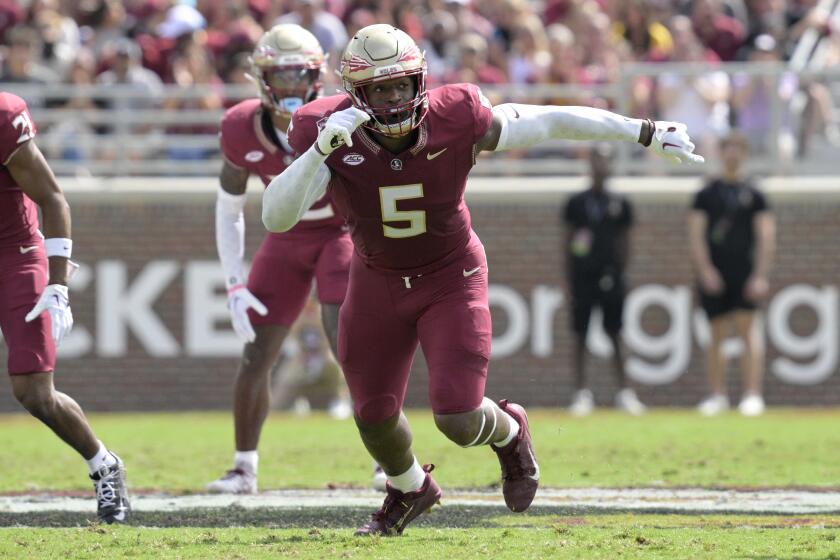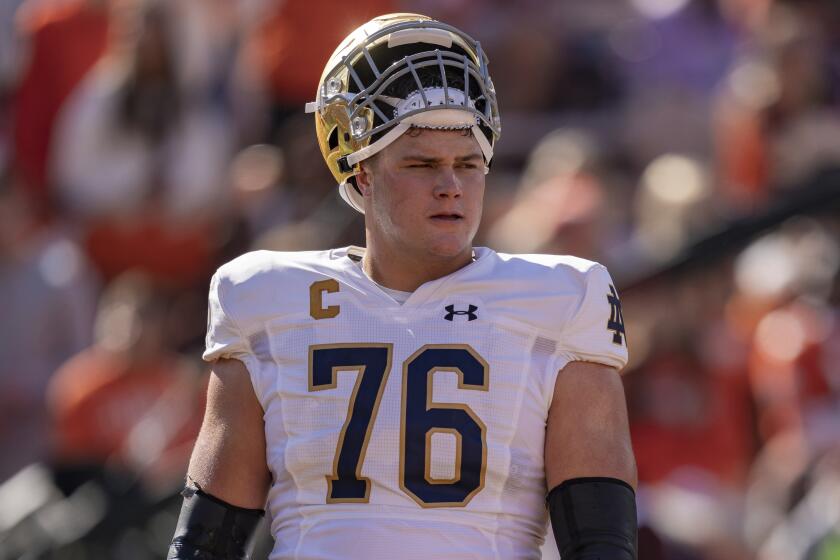Dee Gordon suspension shows cheaters come in all sizes

The Miami Marlins’ Dee Gordon makes his way to the dugout after scoring against the Dodgers during the first inning on Wednesday.
The reactions came fast, in about the time it would take Dee Gordon to steal a base. After Gordon was suspended late Thursday night for using performance-enhancing drugs, this refrain often was heard: Look at Gordon’s hitting coach with the Miami Marlins: Barry Bonds. Sluggers like him are the steroid cheaters, not speedsters like Gordon.
“I’m surprised because look at what kind of player I am,” the suspended player said. “I’m a leadoff hitter. I never hit any home runs.”
That was not Gordon speaking. That was Angel Sanchez, the first player suspended under baseball’s drug policy, in 2005. Sanchez got a 10-game suspension.
The players’ union repeatedly has agreed to toughen penalties since then. Gordon got an 80-game suspension, six days after Toronto’s Chris Colabello got one too.
With owners and players in the early stages of negotiations for a new labor agreement, the issue of whether the punishment is tough enough to deter the crime threatens to divide the players’ union.
Detroit’s Justin Verlander tweeted late Thursday night that players who test positive for a banned substance should not be allowed to play during their appeal. Gordon singled home the tying run and scored an insurance run in the Marlins’ 5-3 victory over the Dodgers on Thursday.
Players can be put on leave during investigations of domestic violence allegations, but those typically stem from police reports and public incidents. Baseball’s drug policy permits players to remain active during an appeal because — in theory — a positive test should remain confidential if a player wins his appeal.
See more of our top stories on Facebook >>
Other players have debated whether an 80-game suspension is a significant deterrent. After Gordon won the National League batting title last season — with Bryce Harper as runner-up — the Marlins signed him to a five-year, $50-million contract. Although players forfeit their salary during a suspension, Gordon still will keep about $48 million.
Would a one-year suspension have deterred Gordon? A two-year suspension? Should a team have the opportunity to void or modify a guaranteed contract if a player is suspended?
Gordon acknowledged last year that he got tired at the end of the 2014 season, his last with the Dodgers. Only he knows whether the substances for which he tested positive — two anabolic steroids — were intended to help him endure the grind of a long season.
We hear a lot, and properly so, about chemists producing designer drugs that help cheating players stay one step ahead of drug tests. But as one baseball official said, the tests get better too, and it is at least theoretically possible that players could test positive now for drugs that could not be detected in previous years.
Get the latest in sports with our free newsletter >>
In the meantime, the words of Don Mattingly take on a new dimension. Mattingly, who managed Gordon with the Dodgers and now with the Marlins, offered these thoughts on Gordon’s progress before Monday’s game at Dodger Stadium.
“You have to remember he was 140-something pounds when he came up,” Mattingly said. “Now he’s slowly over a few years built up. I think he’s 170 pounds. This is a kid who has put on mature strength, along with a pretty good swing, and obviously the speed tool isn’t going away.”
Twitter: @BillShaikin
MORE SPORTS NEWS
Objectors to NFL concussion deal want another court hearing
New England Patriots take a jab at NFL with Tom Brady photo
Cities with anti-LGBT laws can’t host NCAA tournament events anymore
More to Read
Get our high school sports newsletter
Prep Rally is devoted to the SoCal high school sports experience, bringing you scores, stories and a behind-the-scenes look at what makes prep sports so popular.
You may occasionally receive promotional content from the Los Angeles Times.







